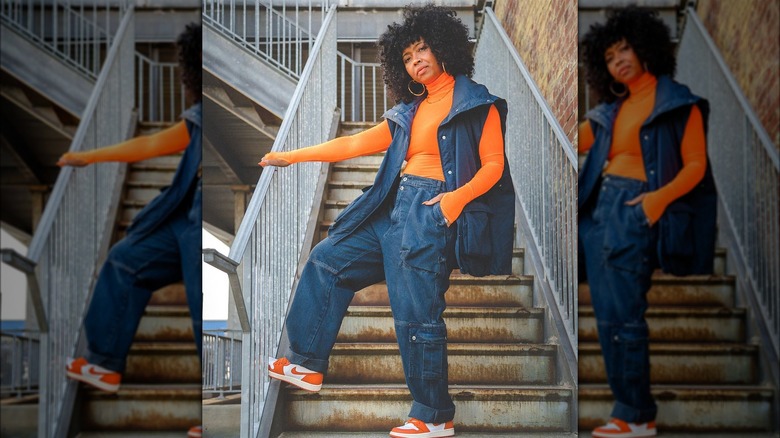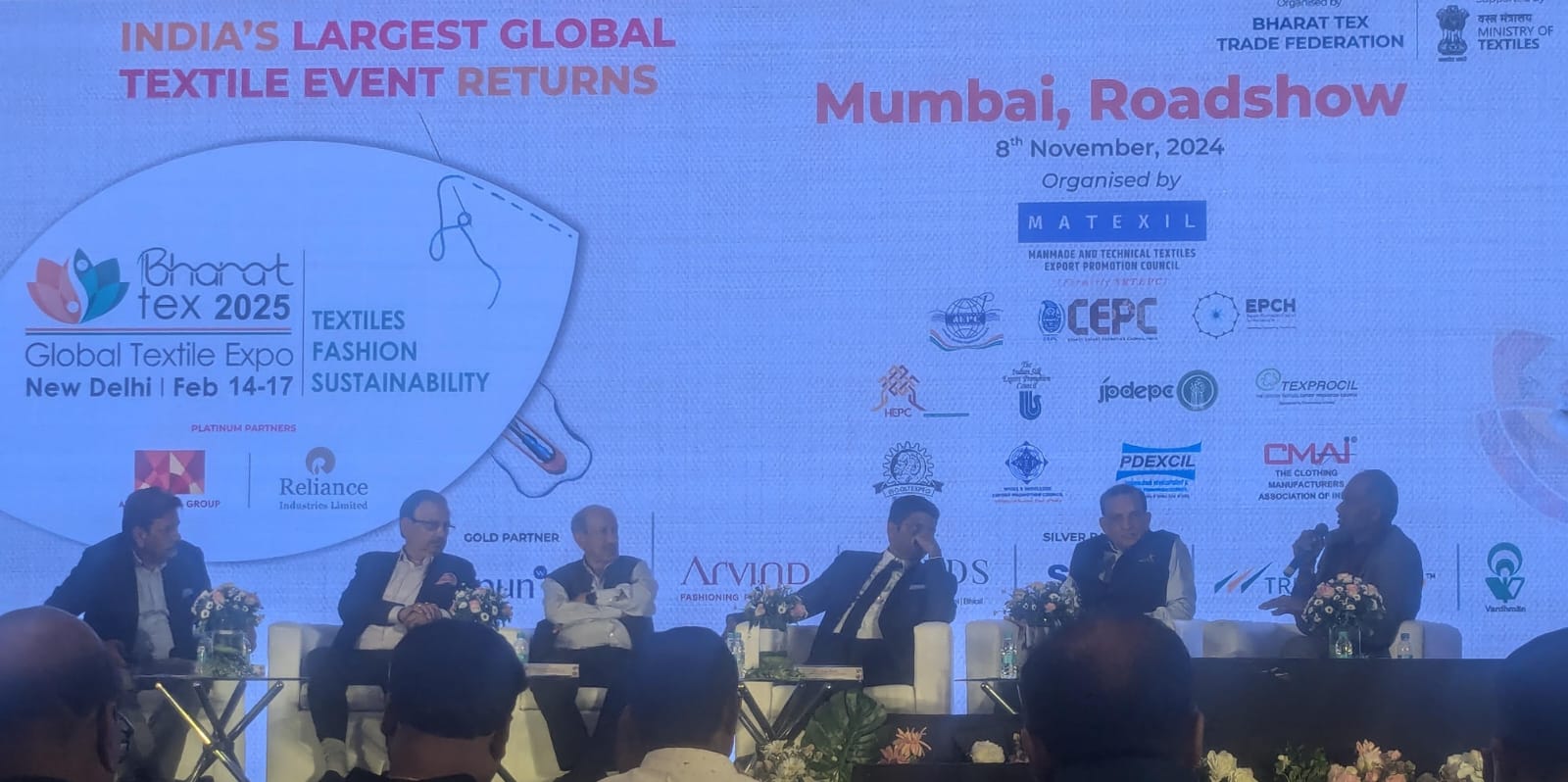FW
Adidas has released preliminary Q3 2024 results, with currency-neutral revenues rising 10 per cent compared to the same period last year. In euro terms, revenues increased 7 per cent to €6.44 billion, up from €5.999 billion in 2023. Excluding Yeezy sales, currency-neutral revenues climbed 14 per cent.
The company’s gross margin improved by 2 percentage points, reaching 51.3 per cent, compared to 49.3 per cent in Q3 2023. Operating profit jumped to €598 million from €409 million in the previous year, aided by around €50 million from Yeezy inventory sales.
Encouraged by this performance, adidas has updated its full-year guidance. The company now expects a 10 per cent growth in currency-neutral revenues for 2024, revising its earlier high-single-digit forecast. Operating profit is projected to reach approximately €1.2 billion, up from the prior estimate of €1.0 billion.
The revised forecast assumes the remaining Yeezy inventory will be sold at cost during Q4, contributing an additional €50 million in sales without further profit impact.
Spring Fair, the UK’s largest home, gift, and fashion trade show, is launching a new ‘Retail Insights’ podcast series ahead of its 75th anniversary. The event, set for February 2-5, 2025, at NEC Birmingham, celebrates the retail industry by sharing stories and expertise from business leaders. The podcast series, hosted by iconic designer Jeff Banks CBE, features interviews with 15 industry figures over 14 weeks starting October 20.
The series, available on platforms like Spotify, Apple Podcasts, and YouTube, was created to give back to the retail community. Featuring topics like brand reinvention, store growth, and business longevity, the discussions aim to inspire and support retail businesses of all sizes.
Spring Fair's Event Director, Soraya Gadelrab, emphasized that the podcast is aimed at retail professionals, catering to both newcomers and established businesses. She highlighted the goal of honoring the community that has shaped Spring Fair, while also offering valuable insights to support retail success.
Jeff Banks praised Spring Fair's legacy, noting its role in the success of his designer collaborations. The first episode features Nick Ronald of Casa Verde, discussing the vital role Spring Fair played in growing his business.
The podcast is designed to offer ‘money-can’t-buy’ insights for retail professionals, helping them thrive in the ever-evolving trade show and retail environment.
eVent Fabrics has partnered with Topo Athletic to supply their eco-friendly eVent Bio Footwear waterproof and breathable laminate. This collaboration integrates eVent Bio technology into Topo’s Terraventure 4 WP trail shoe and Trailventure 2 WP hiking boot, offering comfort, performance, and sustainability.
Chad Kelly, President of eVent Fabrics, highlighted the alignment between the two brands commitment to outdoor activities and environmental responsibility. He noted that eVent Bio Footwear helps maintain high performance while reducing environmental impact.
Designed with plant-based materials, the eVent Bio Footwear laminate provides durability and waterproofing, ideal for rugged outdoor use. The Terraventure 4 WP trail shoe features a secure mesh upper, rock plate, and Vibram Megagrip outsole for superior traction in wet conditions. Meanwhile, the Trailventure 2 WP boot includes a Zip Foam midsole, TPU heel counter, and full-length rock plate for stability, with gaiter attachments for added protection.
This collaboration reinforces both brands dedication to combining sustainability and high-performance outdoor footwear.
With companies including Reliance Industries, Arvind Mills, Vardhaman and Ahuja Textile Mills planning to set up their production units, the upcoming mega textile park in Uttar Pradesh has attracted investment proposals worth over 10,000 crore from domestic textile and garment majors.
In all, over 400 big and small textile manufacturers plan to set up their production and processing plants in the textile park located in the Lucknow-Hardoi districts.
Yogi Adityanath, Chief Minister, Uttar Pradesh, says, the textile hub is estimated to attract a total investment of over 15,000 crore. It would also create 300,000 direct and indirect employment opportunities.
Moreover, the textile park will capitaliseon the disruption in Bangladesh’s textiles sector, following a political upheaval in the country. It will aim to achieve its export target of garments worth $100 billion in the next five years.
Rakesh Saran, Minister of MSME, Khadi and Textiles, UP, says, the textile park will l not only comprise manufacturing and processing units, but also encompass an entire textiles value chain. It will help establish India as a global textile, garment and apparels major.
The facility will also provide training, marketing, designing, packaging, manpower, consultancy and export services.
Traditionally, UP boasts of major textile hubs of Varanasi, Lucknow, Bhadohi and Gorakhpur. The government aims to expand the textile sector as it is one of the largest employment generators in the state. To achieve this, the government has teamed with Raymond to provide skill training to youth in areas of garmenting and tailoring.
Driven by a major merger and a rising demand from rising demand from value-conscious younger consumers, China's secondhand luxury market is undergoing a significant transformation. On Sep 23, 2024 a platform specialising in pre-owned electronics Zhuanzhuan acquired the seven-year old secondhand fashion and luxury e-commerce platform Hongbulin (Plum).
This merger positions Hongbulin to better compete with global players like Vestiaire Collective and The RealReal, both of which have struggled to gain traction in mainland China.
Zhuanzhuan had already invested $100 million in Hongbulin in 2022, and this merger builds on that investment, integrating Hongbulin’s expertise in luxury resale with Zhuanzhuan’s broader platform. While Hongbulin will retain its brand and app, its authentication processes will be folded into Zhuanzhuan’s system, a move aimed at boosting consumer trust—crucial in the secondhand luxury sector.
This merger is part of Zhuanzhuan’s broader strategy to strengthen its position in the highly lucrative secondhand luxury market, projected to be worth over 3 trillion RMB ($420 billion) by the end of 2024. Despite the dominance of platforms like Alibaba's Idle Fish and Zhuanzhuan in the overall secondhand market, the luxury segment remains fragmented, with no clear leader.
While international platforms like Vestiaire Collective have struggled in mainland China, they have performed well in other regions, such as Hong Kong. This challenge may stem from differing consumer motivations: while sustainability is cited as a reason for secondhand purchases, affordability remains the main driver for mainland buyers. These consumers prefer luxury items in near-perfect condition, a preference that has made it difficult for international platforms, which often offer vintage or well-worn goods, to compete.
With China’s secondhand luxury market expected to grow to 217 billion RMB ($30 billion) by 2025, the merger between Zhuanzhuan and Hongbulin could give domestic players an edge. However, broader economic challenges, including inflation and rising unemployment, could impact demand, making it critical for the merged company to navigate these conditions while meeting the evolving needs of value-conscious shoppers.
An American fashion brand, Madewell plans to launch its second collaborative collection with renowned Japanese mill Kaihara.
Inspired by 130 years of the mill’s expertise in the denim industry, the women’s collection incorporates artfully faded washes and heritage details with versatile silhouettes.
Offering an improved version of Madewell’s bestselling overalls-The Oversized Carpenter Overalls, the range offersa relaxed fits and other workwear details like knee patches, cuffable raw hems, a hammer loop and slanted front pockets.
The Rail Straight Jean in the collection has elongated straight legs andfeatures smoothing Magic Pockets in the front. On the other hand, the Super Wide Leg jean is inspired by the ’90s-wide-leg style with cuffed hems. The third, full-length Low-Slung Baggy jean- is worn low with wide legs and raw hems. The collection is currently being sold for $188-$288.
Mary Pierson, SVP-Denim Design, Madewell, says, the jeans in the collection have a strong sense of heritage yet are also very relevant to modern fashion.
Madewell launched its first collection with Kaihara in February this year. The four-piece range included classic workwear staples like a chore jacket and button-down shirt.
A five-day Circular Economy and Textile Exchange Workshop focused on addressing textile waste challenges in Ghana and across Africa concluded in Accra, with calls for sustainable textile management. Organised by the Accra Metropolitan Assembly (AMA) in collaboration with the Africa-Europe Mayors’ Dialogue, the event aimed to foster knowledge exchange on recycling, circular business models, and sustainable textile management.
Beginning on Oct 6, 2024, the workshopbrought together over 100 participants, including policymakers, industry leaders, and advocates from cities such as London, Durban, and Freetown, to explore innovative practices and promote cross-border collaboration.
In his welcome address, Engineer Solomon Noi, Director, AMA Waste Management Department, on behalf of Hon. Elizabeth Sackey, the Mayor of Accra, highlighted the challenges faced in managing secondhand clothing waste in Accra. The city lacks resources to repurpose discarded clothing, despite high volumes of waste, Sackey noted, highlighting plans to implement a circular waste management model in collaboration with international cities by adopting best practices like mechanical recycling and upcycling, Accra’s informal sector, which accounts for 80 per cent of the local economy, could benefit from new jobs in recycling, she emphasised.
Kenji Maghoma, Communications and Production Specialist - External Engagement, Africa-Europe Mayors' Dialogue, explained, the initiative connects over 20 cities across Africa and Europe to find practical solutions to shared challenges. Launched by the Mayors of Freetown and Milan in 2020, the platform focuses on waste management, recycling, and circular business innovation, with the goal of fostering city diplomacy and collaboration.
Addressing the global textile waste crisis, Liz Ricketts, Founder, The Or Foundation, cited the example of the Kantamanto Market in Ghana, which receives 15 million garments weekly. She criticised the categorisation of unsold clothing as ‘charity’ or ‘recycling,’ highlighting the burden it places on local resources. Calling for global accountability, Ricketts advocated for implementation of Extended Producer Responsibility (EPR) policies to align with real waste management costs, helping impacted communities like Kantamanto.
Rachel Singer, Circular Economy Advisor, ReLondon, shared London’s efforts to reduce textile waste, including ambitious targets to eliminate landfill waste by 2026 and increase recycling rates. She emphasisedon ReLondon’s mission to embed circular practices in everyday life and detailed London’s strategy to cut emissions by reducing material consumption.
The workshop included visits to Kantamanto Market and presentations by sustainable fashion designers, aiming to advance policy advocacy for circular textile practices.

Mulberry, renowned British luxury fashion house known for its iconic handbags, is in the center of a takeover battle involving a retail conglomerate Frasers Group led by Mike Ashley. While Frasers Group has gradually increased its stake in Mulberry, the luxury brand's stakeholders remain largely opposed to a complete takeover. This dissonance is due to several reasons, primarily rooted in differing visions for Mulberry's future and concerns over brand dilution.
Frasers Group, which owns brands like Sports Direct and House of Fraser, has gradually increased its stake in Mulberry over the years and currently holds around 37 per cent stake. In late September 2024, Frasers Group made a takeover offer for Mulberry, proposing to buy the remaining shares at 130 pence each, valuing the company at approximately £83 million. Mulberry's board swiftly rejected this offer, stating it undervalued the company's "substantial future potential value." This decision was backed by Mulberry's majority shareholder, Challice, which owns 56.1 per cent of the company.
Reasons for disagreement
There are conflicting versions for the disagreement. While Mulberry's stakeholders, including its majority shareholder Challice say they, are committed to preserving the brand's luxury positioning and heritage. They believe a takeover by Frasers Group, known for its mass-market appeal, could erode Mulberry's exclusivity and prestige. On the other hand, Frasers Group's interest in Mulberry appears to be driven by a desire to replicate its successful turnaround strategies with other struggling brands. However, stakeholders argue that Mulberry's challenges are unique to the luxury sector and require a different approach.
Stakeholders believe Frasers Group's takeover bid undervalues Mulberry's potential. They argue the offer does not adequately reflect the brand's strong heritage, craftsmanship, and growth prospects, particularly in the burgeoning Asian markets. Meanwhile, there are concerns that associating Mulberry with Frasers Group's portfolio of mass-market brands could negatively impact its luxury image. This could alienate Mulberry's core customer base and hinder its ability to command premium prices.
Then there are governance and transparency issues. Some stakeholders have expressed reservations about Frasers Group's aggressive acquisition strategy and its track record with other acquisitions. There are concerns that Frasers’ may prioritize short-term gains over long-term brand building. And stakeholders have also raised concerns about the lack of transparency surrounding Frasers Group's intentions for Mulberry. This has led to speculations and uncertainty, further contributing to the opposition.
Stakeholders have also expressed reservations about Frasers Group's leadership and its track record with acquisitions. They point to the example of Debenhams, which was acquired by Frasers Group but ultimately fell into administration. This history has led to skepticism about Frasers Group's ability to successfully manage and grow a luxury brand like Mulberry. Perhaps this why, Mulberry's board is pursuing alternative strategies to raise capital and fuel its growth plans. The company recently announced a £10 million fundraising round, which Frasers Group was reportedly not informed about in advance. This move suggests that Mulberry is confident in its ability to secure funding without being acquired by Frasers Group.
Meanwhile, Mulberry has been facing challenges in recent years, including falling sales and the need for a £10 million emergency capital raise. However, stakeholders believe that the brand's turnaround strategy, led by new CEO Andrea Baldo, is the right path forward. What’s more, Mulberry's board of directors has rejected Frasers Group's takeover offer, stating that it undervalues the company's future potential. This underscores the board's commitment to preserving Mulberry's luxury positioning and pursuing its own turnaround strategy.
Indeed Mulberry's disagreement about a potential sale to Frasers Group reflects a fundamental divergence in strategic vision and concerns over brand dilution. While Frasers Group sees an opportunity to turn around a struggling luxury brand, Mulberry's stakeholders prioritize preserving the brand's heritage, exclusivity, and long-term growth prospects. The outcome of this takeover battle remains uncertain, but it highlights the challenges faced by luxury brands in navigating the evolving retail landscape and balancing the need for growth with the preservation of their core values.
After three consecutive years of growth, Australia's imports of men’s or boys’ knitted or crocheted clothing declined by 12.2 per cent to 33 million units in 2023.
In terms of value, men’s knitwear imports declined to $232 million in 2023, following a strong upward trend over the previous decade. The most significant increase was recorded in 2021, when the value of imports grew by 40 per cent. The imports or boy’s and men’s knitted or crocheted clothing peaked $263 million in 2022 before decreasing in 2023.
Accounting for 17 million units or 52 per cent of the total imports, China emerged as the largest supplier of men’s knitwear to Australia in 2023 China’s imports more than doubled those from Bangladesh, the second-largest supplier, which shipped 8 million units. Vietnam ranked third, contributing 2 million units, or 6.1 per cent of total imports.
In value terms too, China maintained its top position as Australia’s largest supplier of men’s knitwear in 2023, with imports valued at $116 million, representing 50 per cent of total imports.
It was followed by Bangladesh with imports worth $35 million, while Vietnam imported men’s knitwear products worth for $26 million during the year.
However, the overall trend from 2013 to 2023 shows a robust annual growth rate of 5.5 per centin imports of men’s knitted or crocheted garments. The period saw notable fluctuations, with the sharpest rise occurring in 2021 when imports rose by 23 per cent compared to the previous year. Australia’s imports men’s or boy’s knitted or crocheted clothing contracted in2023 after reaching a peak of 37 million units in 2022.
The Q2, FY25 consolidated net loss of textile manufacturer Alok Industries widened to Rs 262.10 crore as against a net loss of Rs 174.83 crore posted by the company in the July-Sep ‘23 period.
Jointly owned by Reliance Industries and JM Financial Asset Reconstruction, Alok Industries registered a 35.46 per cent decline in revenues to Rs 885.66 crore during the quarter from revenues of Rs 1,372.34 crore in the corresponding quarter a year ago.
The company’s expenses declined by 25.45 per cent to Rs 1,160.63 while its total income, including other income contracted 34.97 per cent to Rs 898.78 crore in the September quarter.
Operational in in-home textiles, cotton yarn, apparel fabrics, garments and polyester yarn markets, Alok Industries is partly owned by Reliance Industries with a 40.01 per cent stake and JM Financial Asset Reconstruction Company with a 34.99 per cent stake.












